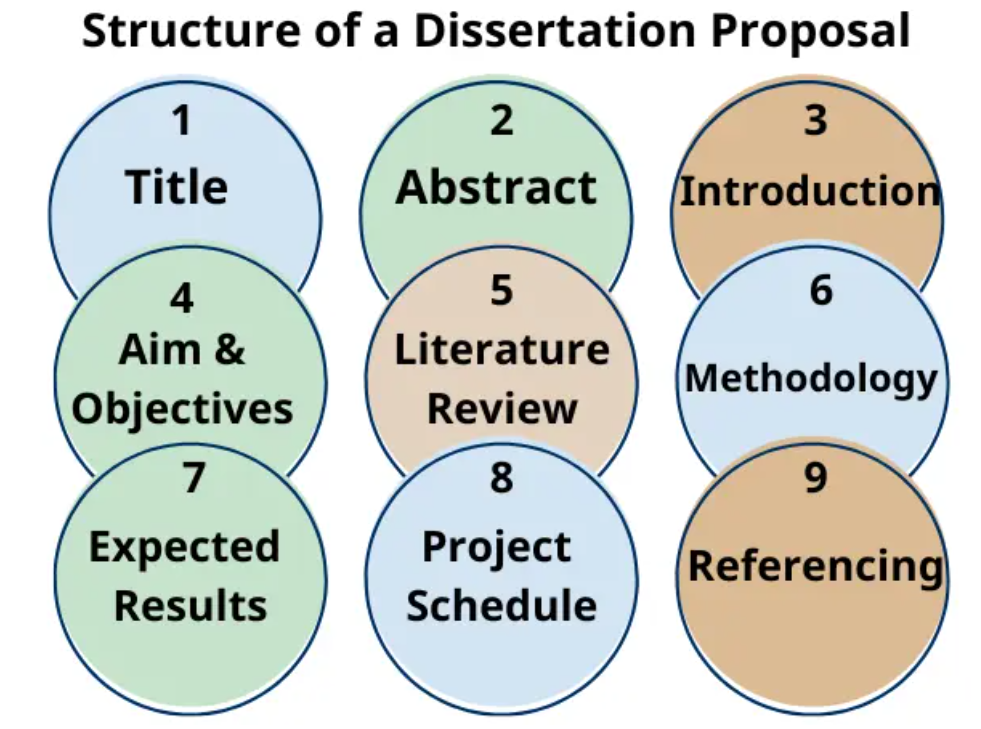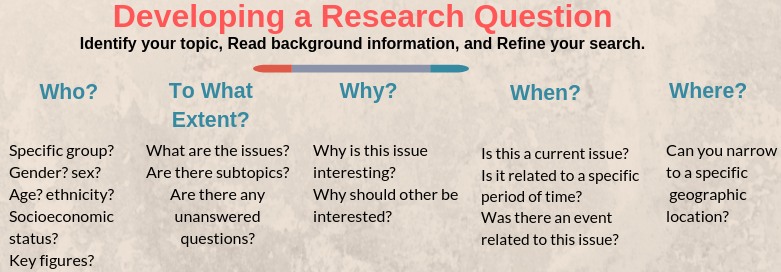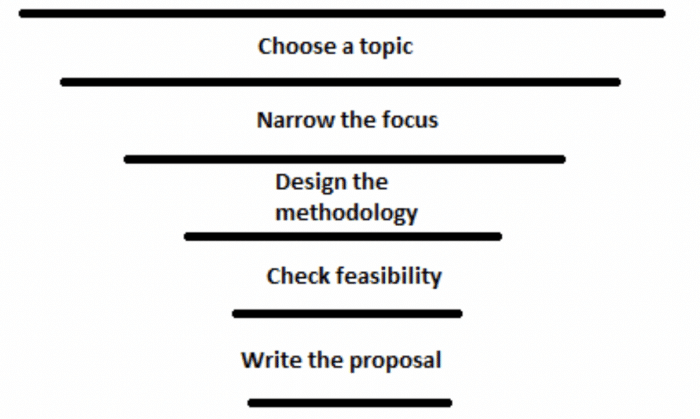The dissertation proposal is the cornerstone of your doctoral journey, a detailed blueprint for your research that sets the stage for your academic culmination. It's a crucial document that demonstrates your intellectual prowess, research capabilities, and commitment to your chosen field. But crafting a compelling and successful dissertation proposal is no mean feat. It requires careful planning, meticulous research, and a clear understanding of the expectations and standards set by your university.
This guide offers a comprehensive roadmap to writing a stellar dissertation proposal that will impress your committee and set you on the path to a success.
Steps to Crafting a Compelling Dissertation Proposal
1. Understanding the Purpose and Scope of Your Dissertation Proposal:
The primary purpose of a dissertation proposal is to outline the research question, methodology, and anticipated outcomes of your dissertation project. It is not a mere summary of existing literature but a compelling argument for the significance and feasibility of your proposed research. Your dissertation proposal should clearly demonstrate:
- A well-defined research question: This is the cornerstone of your proposal. It should be specific, focused, and address a significant gap in existing knowledge.
- A comprehensive literature review: This section showcases your understanding of the relevant literature and how your research contributes to the existing body of knowledge.
- A clear methodology: The chosen research methods should be suitable for answering your research question and should be described in detail.
- Expected outcomes and contribution: This section outlines the anticipated contributions of your research to the field and the potential impact of your findings.
2. Identifying a Strong Research Question:
Choosing the right research question is paramount to a successful dissertation proposal. This question will be the focal point of your entire dissertation journey. Therefore, it must be both relevant and intellectually stimulating. Here are some strategies for identifying a strong research question:
- Engage with your field's existing literature: Analyze current research gaps, explore unanswered questions, and identify areas that require further investigation.
- Seek guidance from your advisor: Discuss your research interests with your advisor and gain their input on the feasibility and significance of potential research questions.
- Consider your personal interests and expertise: Choose a topic that genuinely excites you and aligns with your areas of expertise. This passion will fuel your motivation throughout the research process.

3. Crafting a Compelling Introduction:
The introduction is the first impression your dissertation proposal makes on your committee. It should be engaging, informative, and concisely set the stage for the rest of your proposal. A strong introduction:
- Provides a brief overview of your research area: Offer a concise description of the broader field and the specific area of focus for your research.
- States your research question: Clearly articulate the question you are seeking to answer with your dissertation.
- Highlights the significance of your research: Explain why your research question is important and how it contributes to the existing body of knowledge.
- Previews the structure of your proposal: Outline the main components of your dissertation proposal and how they will be addressed in the subsequent sections.
4. Conducting a Comprehensive Literature Review:
The literature review section is crucial for demonstrating your understanding of the existing body of knowledge and how your research fits within it. It should be:
- Comprehensive and systematic: Include relevant research from various sources and perspectives, and ensure that your literature review covers a wide range of studies.
- Critically evaluative: Go beyond merely summarizing existing literature. Analyze strengths, weaknesses, and gaps in the existing research and explain how your research will address these shortcomings.
- Thematically organized: Structure your literature review around key themes and concepts that relate directly to your research question.
- Clearly connected to your research question: Continually emphasize how the literature you are reviewing informs your research question and the overall direction of your dissertation.
5. Developing a Robust Research Methodology:
The methodology section of your dissertation proposal outlines the specific methods you will use to collect and analyze data for your dissertation. This section should:
- Clearly articulate your research design: Specify the type of research design you have chosen (e.g., qualitative, quantitative, mixed methods) and explain why this design is appropriate for your research question.
- Detail your data collection methods: Explain the specific methods you will use to collect data (e.g., surveys, interviews, experiments) and justify your choices.
- Describe your data analysis techniques: Outline the statistical or qualitative methods you will use to analyze your collected data and ensure that they align with your research question.
- Address ethical considerations: Consider potential ethical implications of your research and explain how you will mitigate any ethical risks.
6. Projecting Expected Outcomes and Contributions:
In this section of your dissertation proposal, you must articulate the potential contributions of your research and the anticipated impact of your findings. Be specific and explain:
- How your research will answer your research question: Outline the expected outcomes of your research and how they will contribute to answering your research question.
- The potential impact of your findings: Explain how your research findings could contribute to the advancement of knowledge, inform policy decisions, or influence practice in your field.
- The implications of your research for future research: Discuss potential directions for future research based on your findings and how your work could be used to further explore your topic.
7. Presenting a Detailed Timeline and Budget:
A realistic timeline and budget are essential components of a successful dissertation proposal. They demonstrate your commitment to the project and your ability to manage resources effectively.
- Timeline: Break down your dissertation project into manageable stages and allocate realistic timelines for each stage. Consider potential delays and include buffer periods for unforeseen circumstances.
- Budget: Outline the anticipated costs of your research, including materials, equipment, travel, and data analysis software. Include a justification for each item and ensure that your budget is realistic and justifiable.
8. Seeking Feedback and Revisions:
Before submitting your dissertation proposal, seek feedback from your advisor, committee members, and peers. Their insights can help you identify areas for improvement and ensure that your proposal is well-written, comprehensive, and effectively communicates your research goals.
9. Formatting and Style Guidelines:
Always adhere to the formatting and style guidelines set by your university. These guidelines typically specify:
- Font: Specify the font type and size for the entire document.
- Margins: Adhere to the required margins for the document.
- Spacing: Use the correct line spacing throughout the document.
- Citation style: Follow the specified citation style (e.g., APA, MLA, Chicago).
Addressing Common Dissertation Proposal Writing Challenges
- Lack of clarity in your research question: Revisit your research question and ensure it is specific, focused, and addresses a significant gap in existing knowledge.
- Weak literature review: Expand your literature search, incorporate a wider range of sources, and critically analyze existing research to identify gaps and address them in your own research.
- Unrealistic methodology: Consult with your advisor to ensure your chosen methodology is suitable for your research question and that the methods are feasible within the given time frame and resources.
- Limited impact of your research: Articulate the potential contributions of your findings and explain how they could advance knowledge, inform policy decisions, or influence practice in your field.
Frequently Asked Questions about Dissertation Proposals
Here are some of the most common questions students have about dissertation proposals, along with helpful answers:
1. What is the purpose of a dissertation proposal?
The primary purpose of a dissertation proposal is to outline your research plan in detail. It serves as a roadmap for your dissertation, demonstrating your understanding of the topic, your research methods, and your potential contributions to the field. It's an opportunity to convince your committee that your research is important, feasible, and worth pursuing.
2. How long should my dissertation proposal be?
The length of a dissertation proposal varies depending on your field and your university's guidelines. However, a typical length is between 20-30 pages, excluding references. Focus on quality over quantity. Concise and impactful writing is more effective than excessive length.
3. What sections should my dissertation proposal include?
While the specific sections can vary, a typical dissertation proposal includes the following:
- Introduction: Provides an overview of your research topic, its significance, and your research question.
- Literature Review: Demonstrates your understanding of the existing research in your field and identifies gaps that your research will address.
- Methodology: Outlines the specific methods you will use to collect and analyze data.
- Expected Outcomes: Describes the anticipated contributions of your research and its potential impact on the field.
- Timeline and Budget: Presents a realistic timeline for completing your dissertation and a justified budget for your research expenses.
4. How do I choose a strong research question for my dissertation proposal?
A strong research question is the foundation of a successful dissertation proposal. It should be specific, focused, and address a significant gap in existing knowledge.

- Engage with the literature: Review recent research in your field to identify unanswered questions and areas ripe for further exploration.
- Consult with your advisor: Discuss your interests and potential research questions with your advisor for their expert feedback and guidance.
- Consider your personal interests and expertise: Choose a topic that truly excites you and aligns with your strengths.
5. How do I make my dissertation proposal stand out?
- Clearly articulate the significance of your research: Explain how your findings will contribute to the existing knowledge and make a tangible difference in the field.
- Demonstrate your expertise: Show a deep understanding of your chosen topic and provide evidence of your research capabilities through your literature review and methodology.
- Present a compelling argument: Make a persuasive case for the value and feasibility of your research, outlining the specific outcomes and contributions you anticipate.
- Seek feedback and revisions: Get feedback from your advisor, committee members, and peers to identify areas for improvement and enhance the overall quality of your dissertation proposal.
6. How do I know if my dissertation proposal is strong enough?
A strong dissertation proposal:
- Presents a clear and well-defined research question.
- Provides a comprehensive and critical literature review.
- Outlines a robust and feasible methodology.
- Articulates the anticipated outcomes and potential impact of the research.
- Includes a realistic timeline and budget for completing the project.
- Is well-written, concise, and easy to follow.
If your dissertation proposal meets these criteria, you are likely on the right track to a successful dissertation defense.
7. What if I'm struggling to write my dissertation proposal?
Don't hesitate to seek help if you're struggling to write your dissertation proposal.
- Talk to your advisor: Your advisor is your primary resource for guidance and support. Discuss your concerns and get their advice on how to move forward.
- Seek assistance from your university's writing center: University writing centers offer workshops, consultations, and resources to help students with dissertation writing.
- Connect with fellow students: Collaborate with peers who are also working on their dissertation proposals. Share tips, feedback, and support each other.
The dissertation proposal is a significant milestone in your doctoral journey. It's your opportunity to showcase your research abilities, your intellectual contributions, and your commitment to your field. By thoughtfully addressing these frequently asked questions and following the advice provided, you can write a stellar dissertation proposal that will pave the way for a successful dissertation defense and a fulfilling academic career.

Dissertation Proposal: A Foundation for Success
Writing a dissertation proposal is a challenging but rewarding process. It's a crucial step in your doctoral journey that lays the groundwork for your dissertation research. By following these guidelines, you can craft a compelling and successful dissertation proposal that will impress your committee and set you on the path to a successful dissertation defense.
Remember, your dissertation proposal is more than just a document. It is a roadmap for your intellectual journey, a testament to your commitment to your field, and a reflection of your potential as a scholar. Invest time, effort, and meticulous attention to detail in this crucial document, and you will be well-prepared to embark on the rewarding journey of completing your dissertation.
Get Professional Dissertation Writing Service
Are you looking for help with writing a compelling dissertation proposal? Then, engage Exemplary Dissertations for a customized dissertation writing service. Our writers can assist you with topic suggestion, proposal writing, proofreading and editing, and plagiarism removal. Apart from dissertations, we can also help you with writing essays, research papers, and thesis.